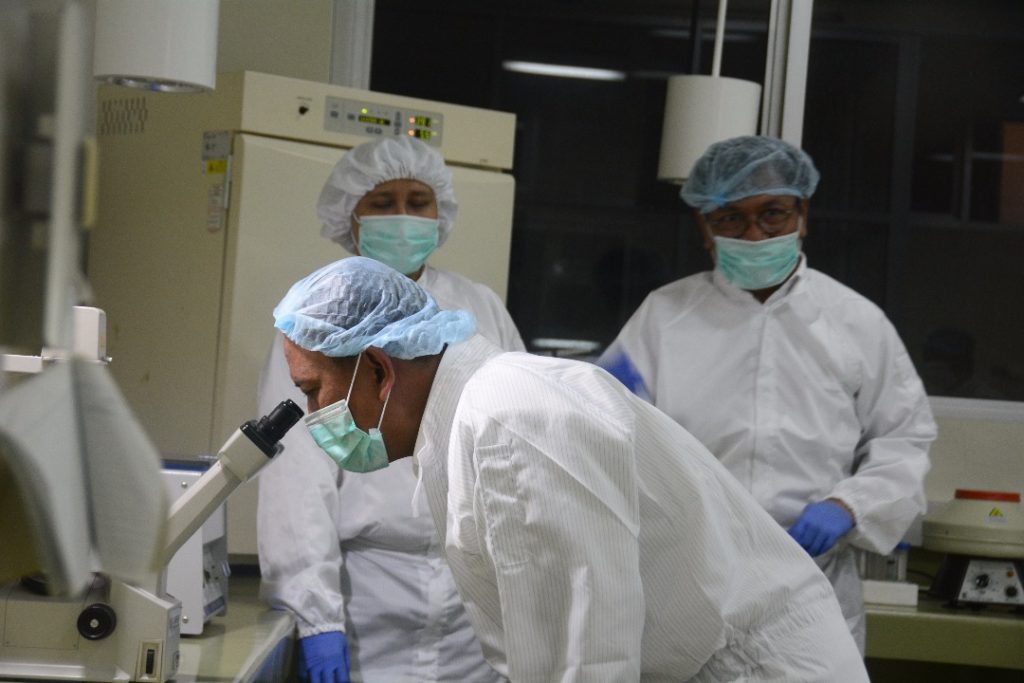Discussing Strategy to Combat Infectious Diseases, ITD and FK UNAIR Hold Symposium
Collaboration and dissemination of research result at international level is one effort of UNAIR to reach Top 500 World Class University. One way of doing it is by holding a symposium as being held currently by UNAIR researchers. The symposium titled Global Strategy to Combat Energizing Infectious Disease in Borderless Era 2016 (GSEID) is a dissemination activity on researches’ results which is held by collaboration of FK and Institute of Tropical Disease (ITD) UNAIR. The opening ceremony was held in FK Hall, on August 8, 2016. “The objectives of this seminar are to shared information on research results on treatment and prevention of infectious disease,” said Dr. Soedarsono, dr., Sp.P (K), as the head of the committee of GSEID in his address. The seminar was attended by the Director of Organization Development of Higher Education Dr. Totok Prasetyo, B.Eng., M.T, Vice Rector I UNAIR Prof. Djoko Santoso, dr., Ph.D., Sp.PD., K-GH., FINASIM and 162 seminar participants, from academicians, researchers, practitioners and also regional governments from Japan, America, Europe and also Indonesia. “UNAIR is big and well known, it is time to be in Top 500 World Class University. Kemenristekdikti will support UNAIR to achieve it, one effort is through this international seminar,” said Totok. “The seminar will bring acknowledgement of the world towards Universitas Airlangga (UNAIR),” he added. BACA JUGA: Innovation of Malaria Diagnostic Microscope by Prof. Indah S. Tantular Totok also expressed his praise to ITD UNAIR as an excellent health centre. He added that the excellence should be proved by reputable journals and the organization of this international seminar. In the seminar, dr. Asik Surya, MPPM, as the Policy advisor on Public Health of Indonesian Health Ministry, was also present as the keynote speaker with a theme Strategy to Combat Emerging and Spreading Infectious Diseases in Indonesia. Various activities in the seminar are, scientific discussion, symposium, poster acompetition and oral presentation of seminar participants. Some papers presented in GSEID 2016 are “The Case for Family Medicine and Primary Care” by Prof. Mark A. Graber of Iowa University, the USA; “Current Situation of Hepatitis B in Indonesia” by Prof. Maria Inge Lusida of UNAIR; and “Invasive Fungal Diseases: a Growing Public Health Challenge” by Anna Rozaliani, Ph.D of Universitas Indonesia. (*) Author: Dilan Salsabila Editor: Defrina Sukma S.











